Virginia Crow's Blog: Crowvus Book Blog, page 12
May 9, 2024
#HistFicThursdays - A Silent Romance Amongst Words - Free Short Story
I don't often write romance, but this short story is perhaps the exception to prove the rule. A Silent Romance Amongst Words was written for the Books and Borrowing project, and did rather well 😊 It was inspired by the loan sheet from Innerpeffray Library - a venue which held one of my book launches way back in 2017!
If you would rather, you can read it in-situ here!
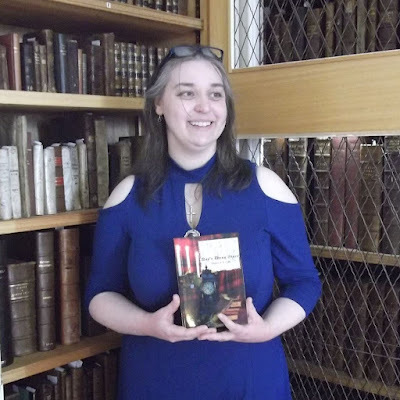 A Silent Romance Amongst Words
A Silent Romance Amongst WordsIt had been a long winter.
Kitty Duff’s hand rested on the books in her lap, willing herself to believe in them. It had been almost four months since Mister Grenville had recommended them to her. She could still remember his expression. He had smiled, a squint smile which had allowed it to remain hidden from Kitty’s chaperons. That week, they had been her guardian’s gardeners, who had as little interest in books as any men could. She had picked out volumes for them, recommending books with enough pretence of interest to satisfy them. But her books had been chosen very carefully.
She looked across at the River Earn as it flitted in and out of view. John could not afford to travel by carriage as she did. He would be walking along the edge of the river, making his way to their secret meeting place, where they communicated in silence, sharing their love for one another in the only way they were permitted to do so: through books.
The carriage rattled up the hill toward the library. As it stopped, her heart fluttered and, without waiting for the driver to open the door, she pushed it back and smiled. Her steps never faltered as she glided forwards. Perhaps John would be there already, for she had not seen him since this morning when he had nodded to her so slightly she could almost convince herself she had imagined it, except that he had accompanied it with that irresistible smile he reserved for the days they would be able to meet one another.
With books in hand, Kitty rushed through the door of the library. The scent of centuries met her, the aroma of learning and the promise of all it had taught. Savouring it for only a moment, she climbed the stairs to where Mister Grenville would be waiting.
This spacious room belied the compact image of the building from outside. Light flooded through the windows, the volumes soaking in the sun rays from within their glass cages. Kitty had never seen them looking so radiant. She turned a full circle to take in each one. The delight in doing this, however, faded rapidly. Mister Grenville was not here.
Setting her books down on a table, she opened the cover of The Betrothed and removed the card which she had treasured since the beginning of December. It clearly stated today’s date.
“Forgive me, I had another reader downstairs.”
Kitty’s gaze rested upon the round face of Mister Grenville whose red cheeks made his smile seem only purer. This gesture was enough to settle her own nerves and she returned it with one of her own.
“Is John here, Mister Grenville?”
“Not yet, Miss Duff. He’ll arrive soon, I have no doubt.”
Kitty willed herself to believe him but, as she looked over the view, her certainty faded. There was no one on the river path. What if the entire romance, so often unspoken and enfolded within the bindings of their library books, had been nothing more than a ruse to prove to Sir Francis that she had disobeyed him? There had been occasions she had fallen foul of her guardian’s terrible temper, but she could not imagine how much greater his rage would be this time. Determined not to succumb to this fear, she set her hand on The Betrothed and released a sigh.
“You are certain, Mister Grenville, that this book was intended for me?”
“Entirely, Miss Duff.”
“Would you..?” She allowed her cheeks to lift into a hopeful smile. “Would you tell me what he said?”
Mister Grenville smiled broadly, ushering Kitty to a chair. “How long he spent searching for those books! He asked me to set them aside, and for pen and ink. I told him I didn’t want anyone writing in them, even someone I liked so much as him. ‘Don’t you be writing on my volumes, Master Niven,’ I said, but he shook his head at me. I didn’t understand his concern until he motioned to the register. ‘He’d not take kindly to this behaviour,’ he said, pointing to the police constable’s name. ‘I’m a miller today, Mister Grenville, and my name’s McClean.’ So that was what I had to list him as: McClean Niven.”
“I don’t mind telling you, Mister Grenville, my heart sped to see those books. Did I misunderstand their meaning? What if Darling John did not mean to elope?”
“If you misunderstood it, Miss Duff, then I also have failed to see their relevance.”
“And the card shows only today’s date.” Kitty felt her exasperation reach a climax. “But then why isn’t he here? All winter I’ve watched him serve Sir Francis; winced at the treatment he has received from such a brute; and revelled in the rare moments of praise I have heard in his favour. I have exchanged silent vows with him whenever our eyes met, and I convinced myself he was doing the same.”
“Master Niven will be here soon.” Mister Grenville produced a handkerchief from his breast pocket in an elaborate flourish. “There will be a reason he’s been delayed.”
Kitty took the offered handkerchief but forced her cheeks to remain dry. “But if Sir Francis should return home and find I’m absent, he will know to find me here. If he finds me…”
“Master Niven will be here soon,” Mister Grenville repeated.
The library had fallen silent after this statement. Mister Grenville’s eyes continued to move towards the window, while Kitty’s thoughts rested on the carriage which waited outside. The longer John took to arrive, the more perilous their elopement would become. This entire escapade had been a foolish notion!
She jumped to her feet as she heard the door downstairs. Steps, hasty and purposeful, sounded on the stairs and Kitty moved forward at the same time as the carriage driver appeared. She had been so certain it would be John, that she stumbled backwards, catching herself on the table to ensure she did not fall. The driver did not appear to notice.
“You should be returning, Miss Duff,” he remarked. “Sir Francis was to dine at home tonight, and sunset’s approaching.”
“I haven’t chosen a new book,” Kitty remarked and, though her voice carried an air of self-assurance, she could feel her hands trembling as she gripped the corners of her cape. “I will not be long.”
“Miss Duff,” Mister Grenville began. “Allow me to make some suggestions.”
“Thank you,” she replied, dismissing her driver with the promise of choosing quickly. As the door closed, she repeated her thanks to Mister Grenville, with a little more earnestness now.
The sun was setting through the window which looked towards the river. Kitty’s hopes faded with it, and she wondered how she would excuse her absence to her guardian when she returned. Patient and kind, Mister Grenville offered her refreshments, but she refused them all.
“He has been delayed,” the librarian soothed, constantly glancing towards the darkening glass. “That is all.”
“Or he has decided not to come,” Kitty whispered. “Have I been a fool? I should never have trusted sidewards looks, and words within books.”
Mister Grenville sighed. “I have never been party to a romance such as yours, but I’m certain it was built solely on love. I’ve watched you both for more than two years, from that first time you arrived together, to his desperate determination last November. There was no deceit in that exchange, Miss Duff. And, when he returned the following month, it was elation I witnessed in his eyes: that you had taken the books, and knew what they meant. Do you know what he said?”
Kitty bit in her lips in an attempt to maintain her composure, and shook her head.
“He said: ‘Mister Grenville, this will be a long winter.’ And then he picked any book from the shelf and left with the greatest spring in his step I have ever observed in any man.”
Both turned towards the stairs as they heard the door once more, but Kitty felt her feet become lead as she recognised her guardian’s voice.
“Mister Grenville?”
She tried to snatch out at the librarian, but her fingers only brushed through air. She listened, hearing the conversation in the quiet of what was otherwise an empty building.
“Sir Francis,” Mister Grenville began, his tone warm and amicable. “It’s been some years since I have had the pleasure of seeing you here. You have come for a book, of course. You were always an ardent reader.”
“I’ve come for my ward, Mister Grenville. She is here, is she not? For that is my carriage outside, and my driver who sits shivering upon it.”
“She was intent on seeing the daffodils in the dusk.” There was concern in his voice, so great that Kitty almost believed him. “Perhaps she’s there still, or wandered further than she intended.”
Silence followed this statement. One second. Then two.
Kitty could imagine her guardian’s expression of scornful disbelief. She shuffled towards the stairs, certain now that this romance had only been a game, a cruel torment in which her aching heart yearned to believe. But if she appeared now, it would prove Mister Grenville a liar. She reached the stairs, desperately searching for the answer to this new conundrum.
Then stopped.
“Master Niven,” Mister Grenville stated, and Kitty felt again the excitement of all today had promised. “I’ve not yet closed my register for the day, and I believe those books are mine.”
“Yes, indeed. I was on my way to return them when Sir Francis passed by. I offered to come and search for Miss Duff with him.”
“Sir Francis does not believe me.” Mister Grenville sounded more sad than angry. “Why don’t you go and search through the library while he and I search the garden? While we three talk, I’m quite sure poor Miss Duff is growing frightened to be alone. Set the books on the table upstairs. I’ll sort them when I return.”
Kitty listened to John’s tread on the stairs and his voice gently calling out her name. She was desperate to run to him, but waited until she heard the other two men leave to search the library grounds.
John discarded the books and rushed towards her. “I was so afraid you would leave before I got here.”
“I was beginning to think I had misunderstood you,” Kitty laughed, her words a whisper as she reached out her hand.
“Kitty, my love, you know my heart, for you have seen it written so many times hidden between pages and within the lines of these books. Surely you knew I couldn’t leave without you.”
“How are we to escape?”
“This way,” beckoned Mister Grenville’s voice. “Quickly, for Sir Francis is returning.”
The couple found Mister Grenville waiting at the bottom of the stairs. Without communicating a word, he ushered them to another door. Twisting back a heavy bolt, he eased the door open, wincing as it groaned on ancient hinges.
“Follow the path to the river, and cross by the ford. I believe you will find someone waiting to take you.”
“Thank you,” John said, passing through and offering his hand back to Kitty. She paused and kissed the librarian’s cheek.
“I cannot thank you enough, but I should like to know why you have done so much for us.”
Mister Grenville rested his fingers on his cheek for a moment and smiled. “Because, a long time ago, it was Sir Francis who looked for this help, and I refused it. I’ve seen what has become of him since, and I would not have the same thing upon my conscience a second time.”
Kitty would have liked to know more of her guardian’s past, but Mister Grenville was already closing the door, and John’s outstretched hand was the only invitation she needed to begin the next chapter of her own romance.
May 2, 2024
#HistFicThursdays - Lost Landscapes - Ravenser Odd
Be honest, who does not love the stories of Atlantis or Brigadoon or any other disappearing and disappeared world? World mysteries have always fascinated me, wondering what people imagined from these lost communities and - even more so - what they wanted them to be and represent.
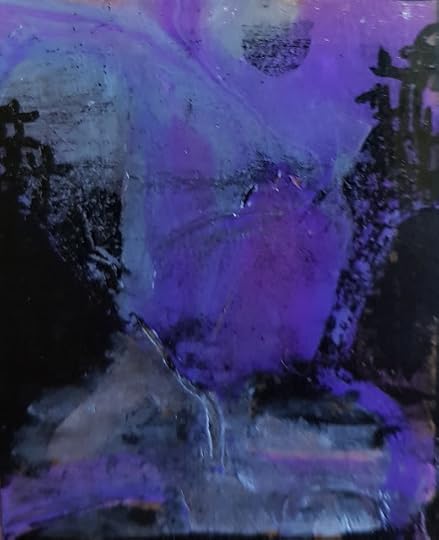 The Destruction of Ravenser Odd
The Destruction of Ravenser OddI stumbled across the history of Ravenser Odd entirely by chance. But what a chance! Here was a setting for a story, one which was almost Biblical in its existence and destruction. Unlike Dunwich, which gradually succumbed to the sea, Ravenser Odd was swallowed in a very short space of time, the final straw coming in The Great Drowning of Men on Saint Marcellus' Day 1362. As well as this, the town was in the Humber, an area with which I was very familiar, having lived in Barrow-upon-Humber for ten years and being an alumnus of Hull University.
Could there be a better setting for a historical fiction tale which was to be laced with horror? Well, I didn't think so.
The product was an 8,000 word story which tells the imagined truth behind the destruction of this town, who was to blame, and what was at stake. For saying this story was rather well received by readers, it has had a frustrating journey so far. I self-published it in a collection of short stories, then had it accepted for another publication on the condition I removed it from the collection... I'm still waiting on this... Any day now, that collection should be published!
Here's the first few lines to whet your appetite...
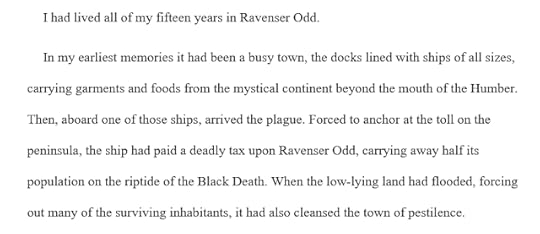
The end of Ravenser Odd came at a time when there were great changes beginning to grow across Europe. Those who had survived the plague were looking to rebuild lives and communities. Ravenser Odd now belonged to the past.
That symbolism is immense!
There is one more wonderfully enticing aspect of lost landscapes. Anything - anything at all - could have happened in them. And, as a writer, that is one of the most appealing and inspiring prospects!
If you would like to know more, have a look at Hull History Centre, who are currently holding an exhibition about Ravenser Odd.
April 25, 2024
#HistFicThursdays - Things to Inspire - Artwork
This month's #HistFicThursdays have been all art-inspired, so I'm sticking with that theme! A couple of months ago, the Things to Inspire blog was about sketches. Today's is about finished pieces of artwork!
Artwork has been an inspiration for millions of people across thousands of years. Just like a book, the finished product can (hopefully!) be an inspiration. Over the years, we've collected one or two pieces of old artworks, and these are a few...
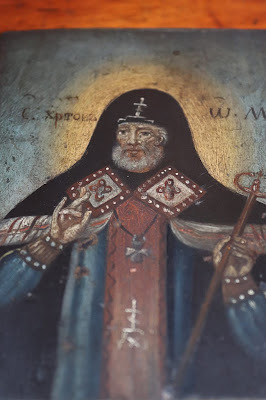 Religious artwork has always been used as an inspiration and, historically, this was how the majority of people interacted with biblical stories.
Religious artwork has always been used as an inspiration and, historically, this was how the majority of people interacted with biblical stories.
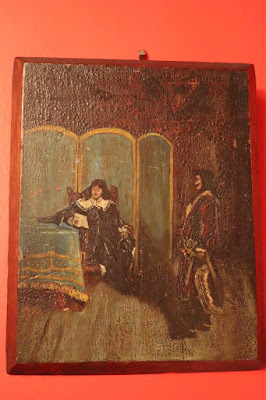 This was a barn find - probably created for someone's own interest judging by the naive style of artwork. It looks like it might have been from a panelled wall at some point. I wonder what happened to the rest of the panels and what story they might show when they are all together...
This was a barn find - probably created for someone's own interest judging by the naive style of artwork. It looks like it might have been from a panelled wall at some point. I wonder what happened to the rest of the panels and what story they might show when they are all together...
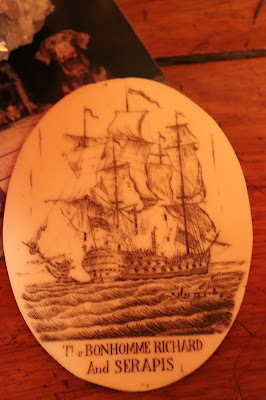 Of course, not all artworks are paintings! Here is a scrimshaw of the Battle of Flamborough Head - the same battle which I'm currently writing about! Our family connections to this made it doubly attractive!
Of course, not all artworks are paintings! Here is a scrimshaw of the Battle of Flamborough Head - the same battle which I'm currently writing about! Our family connections to this made it doubly attractive!
I'd love to know if you find an inspiration in these - or any other pieces of artwork. How important is artwork in your stories - to both the finished product and during the formative stages?
April 18, 2024
#HistFicThursdays - The Weave of the Norns - Free Poem
Continuing from last week's post which explored Artwork as Inspiration (the starting point for Proof of the Old Faith) I'm sticking with Norse culture. Here is The Weave of the Norns, a poem I wrote a few years ago about these three frightening women.
Enjoy!
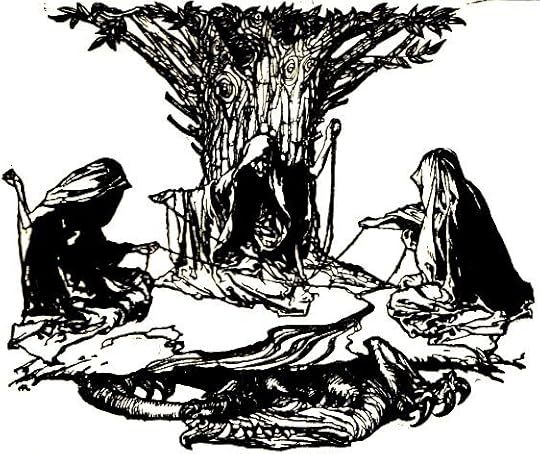 The Norns by Arthur Rackham
The Norns by Arthur Rackham
Beneath the threat of utter doom
he sought them at their fabled loom.
The king searched on until he found
them on the morrow’s battleground.
The tallest worked the wheel alone;
the next, a shuttle made of bone;
the shortest bore a silver sword
with which she severed each loose cord.
What pattern spun these women three,
dictating mankind’s victory!
“I come to beg you demonstrate
a gentle weaving of our fate.”
“Then know you this, oh man of peace,
we weave the thread and cannot cease.”
“Weave us an ending to this war
and grant us threads of peace once more.”
“What cost would such a wise man pay
for us to change our weave this way?”
And now he saw the bloody thread,
time’s fabric dripping crimson red.
As though she took him in her hand
he felt her pull aside one strand.
“You have forgone your chance to leave.
Your life is foretold in the weave.”
The sword cut clear, the thread hung down,
the mediator lost his crown.
For Fate demands a sacrifice
to cast aside her weighted dice.
April 11, 2024
#HistFicThursdays - Art as Inspiration
Last year, the Historical Writers Forum published an anthology of stories which had been inspired by pieces of artwork. I take a particular pride in this anthology - not only because it is a fabulous collection of stories which mine is included in, but also because I helped to come up with the theme.
In amongst the pages of Masterworks, you will find stories inspired by painting and sculptures, and one which was inspired by a carving. I wrote a blog on this little carving when the book came out last November (which you can find here!), but it got me thinking about other examples of artwork as an inspiration...
As historical fiction writers, art is not only an inspiration, it is also a valuable tool. Through art, we can get an idea of what people looked like (very handy if you are writing about a real figure from history) and it can also be very handy for events and settings. One of my favourite continuous portrayals of an event is the example of Frost Fairs. These start from their naming in 1608 and run all the way through to the 19th Century. From them, we can follow the evolution of these spontaneous events, witnessing what people did when the inclement weather offered an exciting and different opportunity to the normality of everyday life.
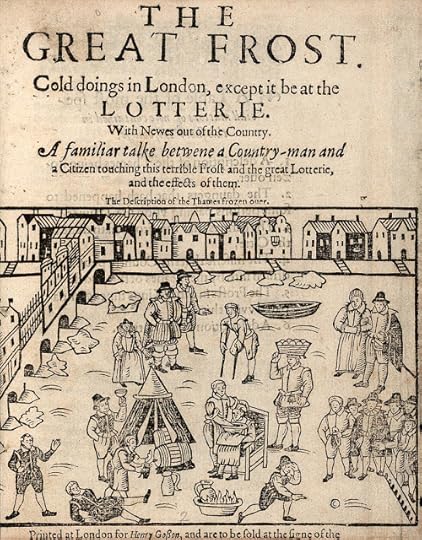 By Attributed to T. Dekker (author) - Houghton Library, Public Domain, https://commons.wikimedia.org/w/index.php?curid=35943569
By Attributed to T. Dekker (author) - Houghton Library, Public Domain, https://commons.wikimedia.org/w/index.php?curid=35943569I mean, what's not to love in this picture?! Right down to the chap who has gone flat on his backside in the lower left corner!
We do not only have 2D artworks to help with research and inspiration. Scuptures are also very helpful. Classical artists were far more adept at realistic sculpture than they were paintings, and through this we can stare into the faces of men and women who have been dead for thousands of years. Not a bad legacy to leave behind!
But then there are the pieces of artwork which, though perhaps they are not from the time of the person or event, and therefore cannot be taken as accurate, still manage to trigger something in our brains and spark an inspiration to tell a tale. There are so many pictures like that: pictures which make you question who the subjects were or what is happening just beyond the edges of the painting. In The Children of Green Knowe, a much-loved story in our house, little Tolly first meets his ancestors in a painting over the fireplace. There is a wonderful line when his great-grandmother tells him that their eyes are meeting his because "they must be tired of looking at me." It immediately draws the painting off the canvas, just as a reader finds with words from a book.
I love the idea that artists are handing on a baton. They are inspired by events or people, then they in turn inspire other people with their creations. It is an ever-growing spiral of artistic inspiration! So, if you had to pick a piece of art (or maybe two!) to inspire a story, which would you choose and why?
April 4, 2024
#HistFicThursdays - Gearing up to this Year's Big Event - #HistFicMay
After the fabulous fun and friendship of last year's #HistFicMay, I have decided to run the risk of doing it again! I'm sure that this year will be even better than last year! So here's your heads-up of what you can expect from this year's online historical fiction event!
I will be looking out for posts on BluSky, Facebook, Instagram, Threads, and Twitter, and I can't wait to reconnect with familiar faces and meet new friends too! Just like last year, every day will have a prompt. You can schedule posts or post them on the day. You can use pictures or use the #HistFicMay prompt image instead. Really, you can post anything which links to the prompt!
And speaking of prompts, here they are:
Introduce yourselfIntroduce your writingWhich writer(s) most inspire(s) you?Favourite quote from your writingIntroduce your MCYou take your MC to dinner - what do you talk about?Self-destructing hero of redeemable villain?Who (if anyone) is your MC based on?Would you give your MC a prequel/sequel? Why?What's your favourite #HistFic book?The last sentence you wroteWhat's your setting and why did you choose it?If you could time travel, when/where would you go?Which (if any) real events feature in your book?What aspect of your setting do you most struggle with?Do you prefer books set in the time you write about or others?Share your favourite research bookBest description you've writtenWhat does you writing space look like?What's the top piece on your story's playlist?Who will your book be dedicated to? Why?What's the best feedback/review you've ever had?How do you advertise your book?What's the next #HistFic book on your TBR pile?Favourite quote from historyTell your story in EmojisWith an unlimited budget, what's your book launch look like?What's the honest tagline for your book?Which scene (if any) have you written multiple times?In a perfect world, who narrates your audiobook?Spill the beans! What's the last word/line of your book?Every Monday is a #MondayMusings prompt, and every Tuesday is a #TuesdayTruths prompt, all the others are mixed in with each other!
So, choose a colour scheme which works best for you, and let's have some #HistFic fun!
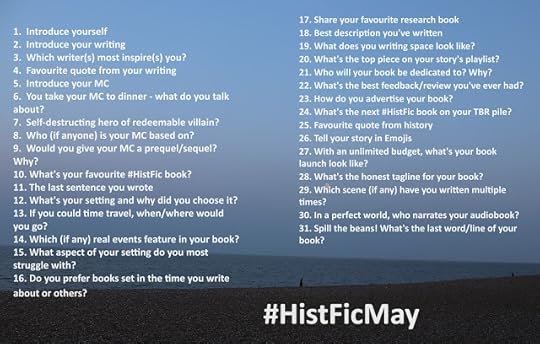
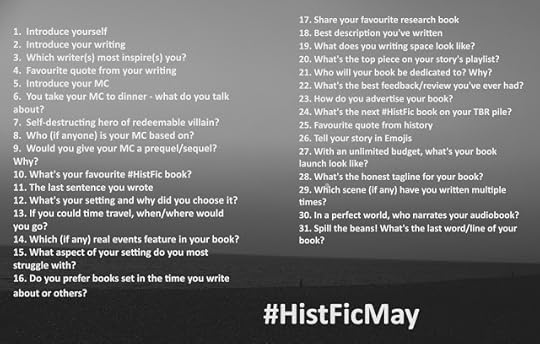
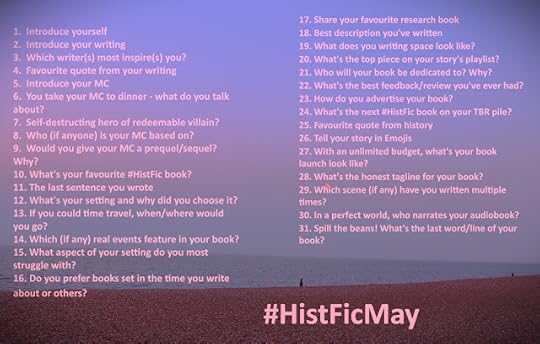
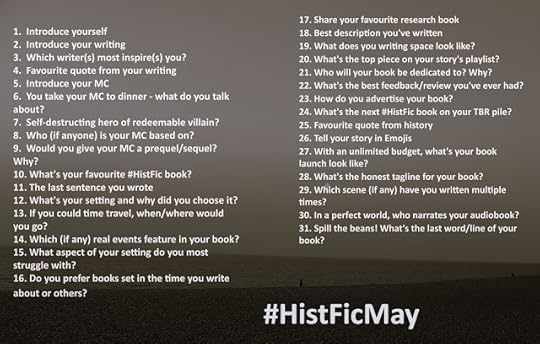
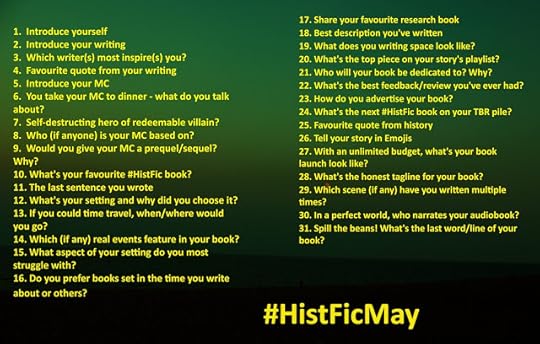
March 28, 2024
#HistFicThursdays - Things to Inspire - Religious Artefacts
Writing historical fiction, it is impossible to ignore the overwhelming impact religion had on people's lives. It was not only the structure of organised religion, but the interwoven beliefs which dominated people's lives. Christianity, the religion which runs through most of my historical fiction, grew and survived with its ability to adapt as it spread from place to place and culture to culture, absorbing certain traditions as it powered on. I love Theology. I did my undergraduate degree in it, and it continues to remain a real interest of mine.
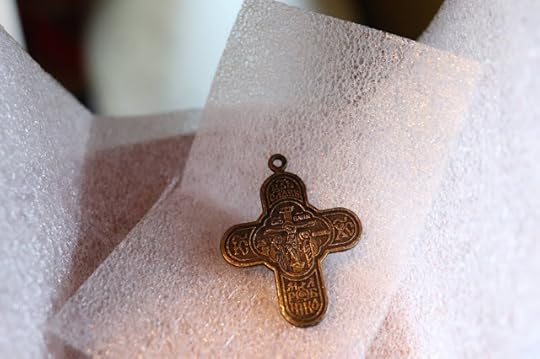
I also love the idea of holding hands across history, seeing what my characters saw, and holding the same objects in my own hands as they or their peers did. Given the significance of religion and superstition throughout history, these things were common - although not necessarily accessible - and would have been understood by all. Religious iconography dominated Pre-Reformation Europe, speaking as a universal language to all. These images were not all uplifting or positive, with the growing prevalence for Memento Mori (Remember Death) appearing in churches and on gravestones.
The tradition of saintly cults within Christianity led to people adopting a saint who matched or reflected their professions or interests. People would carry certain objects with them as a talisman, almost like being in a club. Of course, in Christianity, the most common of these emblems was a cross, like the one above.
Religious emblems and influence were everywhere. The spoon below is adorned with the cresent moon and star of Islam. I do not know what it was used for, nor am I able to read the writing on the bowl of the spoon, but it is a beautiful piece of craftmanship, and demonstrates the care with which this artefacts were made.
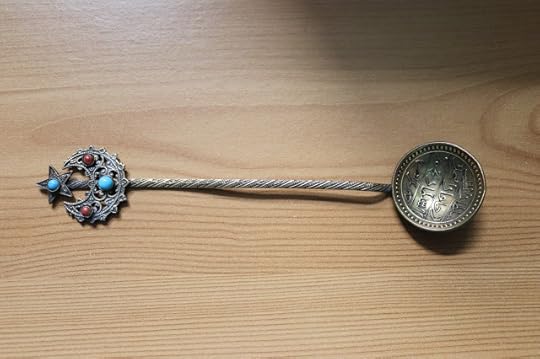
And it was not only artisans who created religious works of art. The samplers below were viewed as both an important skill and a good devotion for young women of the nineteenth century. I do not know who made these. I love to imagine who the stitcher was and, perhaps most fascinatingly of all, why she picked these verses to stitch and display. [As an interesting aside, check out the letter A in them. It is the only lowercase letter. What a great, quirky observation to include in a story!]
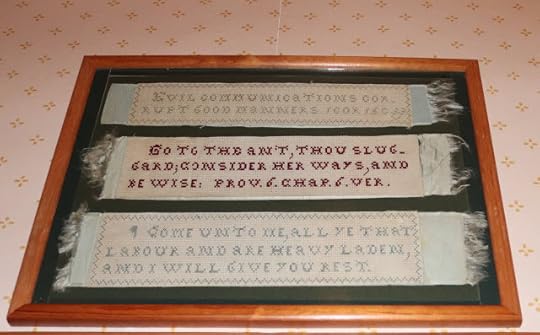
The Reformation in this country wiped out an unimaginable wealth of artistry and artefacts. I feel the same way about Henry VIII's Dissolution of the Monasteries as many historians feel about the destruction of the Great Library of Alexandria. It is almost impossible to visit those ruins and imagine the overwhelming love, care, and extravagance of those buildings... Almost. I suppose that is where the imagination and creativity of writing comes in. But Henry's zealous war on the monasteries did not just see the buildings pulled down as people recycled to lead from roofs our the stones from walls. It also saw the loss of countless pieces of artwork and texts. Words which were painstakingly crafted, pictures which were painted through nothing more than a sense of devotion, were all seized, destroyed, or lost.
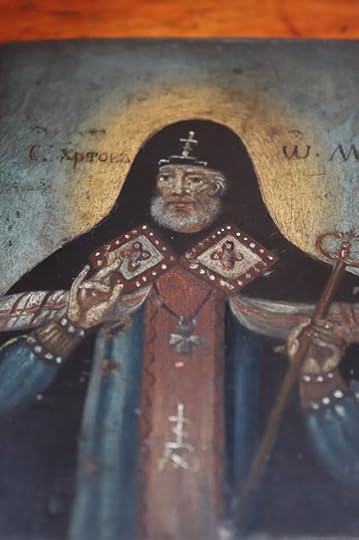
So, whatever your views on or about religion, if you write historical fiction, remember: Daily life was governed by these beliefs. Reminders were everywhere, imagery was everywhere, religion was everywhere. I know much of this post has been concerning Christianity, but whenever or wherever your story is set, there will have been a substantial role for your characters' religion. So make sure you don't underestimate the role it played!
March 21, 2024
#HistFicThursdays - The Clockmaker - Free Short Story

Today, I'm super-excited to be sharing a short story from the fabulous Gothic Horror writer, Judith Crow. Here is her Poe-inspired story, The Clockmaker...
The Clockmaker
I cannot sleep. I cannot allow myself to sleep. In sleep, Death may strike with as little awareness as warning, and I find myself refusing to accept unawareness at the moment of demise. Yet, I wish I were afforded others’ natural ignorance of the timing of death. In the names of heaven and hell: I both curse and envy them for their ignorance!
I, like others, started my final day with little to suggest it may be my last. I was in rude health when I arrived in London twelve days earlier, and today I took the time to call upon Sir Benjamin Pelham, a man I had served alongside in India. Twenty years ago, his interest in science and invention had lured him back to the English universities, while I had stayed abroad to make my fortune overseeing the collapse and redistribution of the once-mighty East India Company.
Sitting in the entrance hall and waiting for Pelham to return from his daily work, I found myself enchanted by a beautiful marble clock just inside the drawing room. I could not see its face, but the marble of its body was coloured by deep purple veins. Once, I heard it chime the hour: a clear, musical note which seemed to sing in perfect harmony with itself.
When Sir Benjamin arrived later, we sat together, and I informed him of the many things which had occupied me since last we had met. He did not immediately discuss his own research, but I assumed he was like many other inventors: fiercely guarding their intellectual property until a patent had been established. However, as I was leaving, I passed the beautiful marble clock and looked at it properly for the first time.
“Your clock has stopped, Pelham,” I pointed out.
Sir Benjamin shook his head. “Not stopped,” he said with a smile. “Only waiting.”
I now regret my decision to request an explanation.
“It is the project to which I have committed my past fifteen years. I have named it the Donne Clock. ‘Never send to know for whom the bell tolls; it tolls for thee’? Familiar to a Cambridge man such as yourself, surely?”
“I know the work,” I replied. “But what has Donne to do with this clock?”
Sir Benjamin smiled again.
“This clock is my genius,” he said, gazing at it with the paternal pride of a patriarch admiring their eldest son upon his wedding day. “I have created here a clock which does not tell the time, but an implement which betrays the time. The bell will never strike, save for when it senses that the final twelve hours of a nearby man are upon him.”
I cannot begin to describe the horror I felt as he went on: each syllable of his explanation condemning me to the grave. I wait now, as no man has a right to wait, knowing that Death is coming.
Knowing the exact day, hour, and minute of death.
The bell has tolled for me.
March 14, 2024
#HistFicThursdays - The Triumph of Maxentius - Free Short Story
Today for the #HistFicThursdays blog, I'm sharing my Alternative History short story The Triumph of Maxentius. It looks at the possible outcome if Constantine had not been victorious at Milvian Bridge. This was one of those key moments in history where everything changed direction... but what if it had gone in a different direction?
If you enjoy this story, have a look at my other Roman Alternative History story, Vercingetorix's Virgin, in the Historical Writers Forum's anthology Alternate Endings.
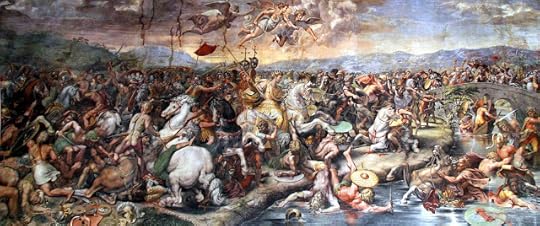 The Battle of the Milvian Bridge (1520–24) by Giulio Romano.
The Triumph of Maxentius
The Battle of the Milvian Bridge (1520–24) by Giulio Romano.
The Triumph of MaxentiusIgnatius had not watched his father’s execution. He had been present, hoping to avert the sword’s terrible movement as it delivered its fatal blow but, upon being recognised in the gathering crowd, he had fled. For several weeks he had hidden from everyone he knew and run from those he did not, dreaming of the day he could free his father and quit Rome altogether. But he had never found his opportunity. Neither had he found his sister, Felicity, who deserved an explanation at least.
His father had not been a bad man. He had not been a criminal nor, for as long as Ignatius could remember, had he ever broken the law. Not like his son. Ignatius was breaking the law every day, just as Felicity was, wherever she might be.
Slipping out into the starlight, Ignatius pulled his tattered clothes around him. Following the execution, he had hidden in tunnels below the public baths, knowing the building would remain empty while Maxentius celebrated the victory he had won at Milvian Bridge. Although this event had been three months earlier, it had taken Maxentius all this time to secure himself as Augustus and win over the senate. This he had finally achieved with crowning glory today, taking more than seventy Christians and putting them to death in an array of different ways across the city.
Ignatius shivered as he rubbed his neck. His father had been amongst the lucky ones: perishing swiftly to join the ever-growing number of martyrs in the heavens.
The blood sports of the day and the sacrifices offered to the Roman gods had led the city into a sleepy, drunken slumber. Now, as he threaded his thin body through the gap between two walls, Ignatius was alone in the quiet alleyway. The quietness in the streets seemed strange. Noises usually filtered through walls, even when the roads were empty. Tonight, there was only himself.
Without meaning to, his twisting path led him toward Palatine Hill. This was where he had imagined racing forward, snatching the sword and, in a manner defying the way he had been brought up, turning the weapon on the executioner to free his father. He had also planned his route out of Rome with the old man: into the catacombs beyond the city and then, under cover of the darkness which now protected him, disappearing into the safety of the west.
“Forgive me, Father,” Ignatius whispered, staring up at the temple of Jupiter. This god was revered, his followers given all the worldly gifts they could ask for. They lived in luxury and wanted for nothing. How easy would it have been for his father, a Roman citizen, to have rebuked his claim of Christianity. Then he, Ignatius, and Felicity would all have been safe. Ignatius felt his forehead crease and he shook his head, disgusted in himself.
“Forgive me, Father,” he repeated. “I’ll find her. I’ll take her to safety.”
“Who are you talking to?”
Ignatius jumped, cursing himself for lowering his guard. From within the shadows to his right emerged a thin man, with a nose which looked too heavy for his face. With his head bent low, it was difficult to see any more of him, except his clothes were in a similar state to those Ignatius wore. He did, however, wear a leather coat over his thin form, making him misshapen and swamped.
“I don’t see your father,” he remarked, realising that Ignatius wasn’t about to answer him. “I don’t see anyone but you and me.”
Ignatius, his tongue cleaved to the hard pallet of his mouth, tried to find the words he wanted, but only strangled sounds spluttered out. He wanted to run away from this man but, as skeletal fingers gripped his arm, he gasped as his eyes settled on the man’s ring. It was too big for his finger, almost slipping off as he moved forward.
“Chi Rho,” Ignatius breathed, causing the man to recoil, his ringed hand slipping into the sleeve of his coat. “You were one of his men.”
“You’re a foolish boy,” came the hissed reply. “Standing here and offering prayers to a god who has cost the lives of his followers. Maxentius has only just begun. You should get out of Rome.”
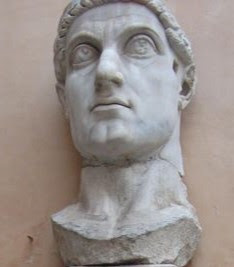
“My father was loyal to Constantine,” Ignatius pleaded.
“He’s gone then? Your father?” There was something in his words, pity perhaps, which softened his tone.
“He has joined the martyrs.” Amid a glimmer of pride in his heart-breaking words, Ignatius felt comforted in admitting such a thing to a man who openly wore the emblem of the deposed emperor. Constantine hadn’t condoned his father’s faith, but neither had he condemned it.
“We’re not safe here,” the man whispered. “Come with me.”
“Where to?”
“A place where it won’t matter who your father was. A place you will be safe.”
At this final word, Ignatius nodded. Safety was what he wanted, what he yearned for, and what, since his earliest memories, had been denied him. Following his guide in silence, he nonetheless stared in as many directions as he could to ensure he wasn’t walking into a trap. But this man knew the city well, far better than Ignatius. If ever a sound came from in front, he knew exactly where to turn to escape unwelcome eyes.
By the time the man pulled himself onto a ledge high above the ground, Ignatius had come to trust him, at least enough to help him as his weak arms failed to heave himself indoors. Next, the thin man reached his hands down to Ignatius, who leapt up and snatched his wrist. But, while his guide was willing, there was no strength in his frail body and, for fear he would pull his guide out of the window, Ignatius let go and fell back to the road.
“Come on, boy!” hissed the man above him. “They’ll be here soon!”
Ignatius leaned back against the wall of the house, wishing the shadows would swallow him as he heard footsteps, ordered and steady, from the adjoining road. Coaxing his tattered nerves to swallow back a scream, he jumped as a rope dropped before him. Without wasting a second, and never questioning how the man in the room above would hold the offered rope, he pulled himself up. The coarse, wiry material lacerated his palms each time it passed through them and, by the time he dropped into the room above, involuntary tears streaked his face.
His guide was sitting on a stool, the rope having been tied around the legs. As Ignatius looked at his cut hands, he rose from the seat and cleaned the blood from them with the bottom of his own tunic, before pulling the tail of cord back through the window.
This gave Ignatius a chance to look around him. The room was small but dark, making it impossible to see into all the corners. Through the tears, he could make out a door opposite, and it was towards this his guide walked.
“Thank you,” Ignatius whispered, causing the man to turn back to him, and his mouth to twist up in a slight smile. “Are you a..?”
“Christian?” finished the man, realising Ignatius was not about to. “No. But I have known many.”
“But your ring-”
“I was in the emperor’s army. As your father was.”
“You knew?” Ignatius gasped.
“I suspected. Cassius, was he not?”
Ignatius nodded.
“I remember his arrival at Augusta Treverorum. I didn’t know he had a family. Did you see his end today, boy?”
Ignatius lowered his head as he shook it. It was strange knowing this man knew his father, perhaps better than he had done. After persecution in their native Persia, his father had moved west. Christians were safe there. Leaving his wife and three children in Rome, which was largely apathetic towards Diocletian’s edicts of persecution, Cassius had travelled to the northwest and joined Constantine’s army as an engineer. Since then, Ignatius had only seen his father once, when he returned to Rome on discovering his wife and eldest child had died in the summer. Ignatius had become responsible for his sister, Felicity, but instead he had tried to follow his father. He hadn’t seen her since.
“What is your name?” This voice pulled him from his memories and guilt.
“Ignatius. What may I call you?”
“Tiberius.”
Opening the door, Tiberius ushered Ignatius after him. The room beyond was filled with golden light, and the beautiful stone of the building only reflected it in a sombre radiance. There were several people there, Ignatius’ quick eyes scanning over the gathering of men, women, and children, until it settled on one girl who was smiling as she spoke.
“Felicity?” the word had barely left his mouth before he realised he had been mistaken, but he now had the attention of every person in the room.
“These are your people,” Tiberius said, with a wave of his hand. “You will be safe here.”
He looked at each of the faces which, at Tiberius’ words, melted from fear to gentle affection. Unused to so many people, Ignatius hung back as his guide left the room by another door.
“You asked about Felicity,” remarked one woman, reaching out her hand to him.
Ignatius recoiled. “She was my sister.”
“I knew a girl of that name,” came the reply, apparently unconcerned by the manners of the boy before her. “She looked like you, too.”
He felt his eyes widen at her words. “Where was she?”
“I have not seen her since I came here.”
“When?” Ignatius pleaded, forgetting the possibility it could be anyone but his sister. He gripped her arm. “Where?”
“Three days ago. Close to Trajan’s Bathhouse.”
“S-so close to the arena?” Ignatius stammered. “Was she safe?”
Whatever words the woman was speaking were lost on his ears. His sister, who he had looked for since the battle at Milvian Bridge, was within reach. But she was only a stone’s throw from the monstrous Colosseum. Today, events had been held there in celebration of Emperor Maxentius’ victory, events he couldn’t bear to imagine had involved his sister.
All he could think about was reaching her. He was stammering words of thanks to the woman, not thinking about them, only keen to offer them, and he rushed over to the door. There was a renewed urgency and purpose to him as he threw himself through the doorway. He looked out into the dark night, checking the road was empty, before he lowered himself from the window.
He wasn’t sure where he was. Tiberius had woven through the streets and alleyways with an unparalleled certainty which had pleased Ignatius. Now, it took him several minutes and more than a hundred paces to find anything he recognised. The triple openings of the Arch of Claudius were the first things he recognised as he peered out onto the Via Flaminia. It meant he would have to cross Capitoline and Palatine, but this was the closest he had come to finding his sister in six months. He had to take that risk.
The morning was not far away. There was a strange light in the city which heralded dawn, as though the fires in its basins shrank away from the sun. Sol Invictus, the Romans called it. Constantine had championed this deity, perhaps because he had been to lands where the sun so rarely shone. Ignatius had heard stories of the northern winters, soaking in as many tales as he could, imagining his father there. Then, when he returned, his father had ordered Ignatius to remain in Rome.
The sun was rising as he hurried past the forum, running from one temple to another and trying to avoid being seen. He didn’t know how people had recognised him as a Christian yesterday. He couldn’t see any difference in himself compared to any other person. But he didn’t want to risk being seen by anyone who could identify him.
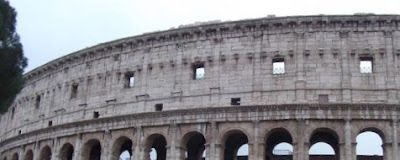
His steps were halted as he arrived at the open square before the enormous arena. For a moment, then a while longer, he only stared at it. He had never been inside, too afraid of what it held and terrified he would never make it out again. Ignatius had tried not to be a Christian. Even while his mother had been alive, he had questioned everything he had been taught. He visited temples of the Roman gods, peering in from the roadsides or venturing up the stairs when he was certain not to be caught. But somehow he had always returned to this persecuted religion, with no one persuading him but himself.
He jumped as he heard someone shouting. Feeling all the blood drop to his feet, he stared at the colossus of Emperor Nero, whose name had been whispered with disgust by all the people he knew. Had it been the statue he heard? He could see no one else. Trying to coax his feet forward, he felt his breathing become rapid and shallow as he realised they wouldn’t move.
He heard the shouting again, sparking enough fear for his body to move without his head thinking. He ran. He didn’t know where he was going, only that he had to get away from the angry cries. It wasn’t the colossus, it was a group of three young men and, as he glanced over his shoulder, he realised they were chasing him.
This momentary distraction cost him. He felt himself stumble, and crashed to the ground, trying to run even while he was lying there. A hand snatched his shoulder and he found himself staring up at a heavy rug which struck him as it fell.
“Quiet,” whispered a voice close to his ear. “They will hear you.”
There were various calls echoing in the air, and it took him a moment to realise he was in the Great Market. Vendors were shouting out, the air vibrating with a thousand words from a hundred people. After several minutes, the rug was pulled aside and his rescuer gave a slight laugh.
“Praise be to Him, Ignatius! I thought it was you.”
Ignatius stared in disbelief as his gaze rested on his sister. His lips mouthed her name but, for fear of his followers, he could not coax his voice to sound.
“But, little brother,” she added, dragging him to the concealment of the market wall. “What are you doing here? I haven’t seen you since the day Father left. Rome is no longer safe.”
Ignatius knew she was speaking sensible words, the same words he had imagined saying to her, but he shook his head. “Father’s dead.”
“Milvian Bridge?” she whispered.
“Yesterday. He has joined the martyrs.”
“In the arena?”
Ignatius had not thought it was possible for Felicity’s voice to become quieter, but now she proved him wrong.
“At the temple. Before the pagan gods.” Ignatius sniffed before anger overtook his sorrow. “I would have taken the sword and-”
“No, Ignatius,” Felicity said. “That is not what we should do. Besides,” she added, her voice dropping, “there were none killed by the sword.”
Ignatius felt his eyes widening at her words, both dreading and longing to question her. He turned as he heard someone shouting across the market in an angry voice.
“They know,” he hissed. “How do they know?”
“Know what?” Felicity asked, holding her brother. “It is only-”
“That we’re Christians.” Ignatius interrupted. “How do they know?”
His outburst won him expressions of confusion and mistrust from those close enough to have heard, and Felicity stared at him in disbelief.
“They were not shouting at you, little brother,” she explained, snatching his arm and dragging him away. “But they will happily turn on us now.”
Ignatius ran after his sister, trying to understand what she was saying. Of course, it made sense. He couldn’t remember the words of the people yesterday at his father’s execution, nor this morning beside the colossus. Neither had he made out the words of the men in the market just now. But every time he heard that angry tone, he had assumed it was aimed at him. And every time he ran, they assumed he was guilty.
Now, though, that assumption and careless confession of faith had led him to endanger his sister as well as himself, the one thing he had been trying to prevent. They were being followed as they ran towards Palatine Hill, searching for the anonymity that area would offer them.
“There is a place where we will be safe,” Ignatius panted as they hid behind a wide column. “It’s off the Via Flaminia.”
“That’s the other side of the city.”
“There’s an upper room, Felicity. Just as there was at the Passover. And many Christians. We’ll be safe there.”
“Can you remember where it is?” she whispered, the fear in her face growing as she realised the men following them were directly behind the column.
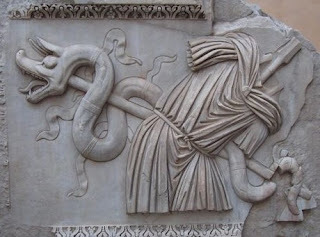
Ignatius nodded, more willing it to be the case than actually believing it. He realised he was holding his breath, and he only released it as he heard the men continue on their way. Without venturing words, he led Felicity down to the bottom of the hill and through the paths and alleys which would eventually lead them to the Via Flaminia. Having lost their tail, the siblings attempted to walk with an air of confidence, trying to convince themselves as well as those around them.
“Look!” Ignatius laughed suddenly, bringing a confused frown from his sister. “That is Tiberius! He saved me last night. It is his upper room.”
Relieved to have found the man who had brought him to safety the night before, and grateful he would not have to attempt to find his own way back to the house, Ignatius snatched Felicity’s arm. She frowned at him, but Ignatius only pulled her forward. Tiberius was moving as swiftly as he had done last night but, this time, there were dozens of people as obstacles and Ignatius found it difficult to keep up. He was on the verge of calling out, when he realised the man had disappeared.
“We’ve lost him.”
“Perhaps it is for the best.”
“There!” Ignatius began, ignoring his sister’s tone and pointing up the hill as he recognised the profile of the man from last night. “Wait here.”
Leaving his sister at the bottom of the hill, he raced up the steps. He had almost reached him, but stopped as Tiberius began talking to another man. There was something familiar about him, from his long, thin nose to his turned-down mouth and chin. Intrigued, Ignatius crouched down beside a low wall, watching and listening.
“Give me one reason why I should listen to you,” growled the sullen man, staring at Tiberius.
“I can give you twenty-seven,” Tiberius replied. “All I ask is a return of what is rightfully mine. You’ve achieved your rank by the same token. Why may I not do the same?”
“Twenty-seven? That is hardly worth starving the beasts for.”
Ignatius felt his blood run cold as he began to realise what he was hearing. The upper room wasn’t a haven: it was a prison. It had been offered as safety, but was only a means to win the disgraced Tiberius back his property. Twenty-seven Christians in the upper room, unwittingly waiting to be offered as sport and food for the beasts.
Throwing all his attention at the conversation, Ignatius failed to hear the attacker behind him who snatched his throat and pulled him to his feet. Tiberius and the other man both turned to face him.
“What is this?” asked the dour man.
Ignatius tried to plead his innocence, but his captor’s hand was cruelly tight.
“One of the twenty-seven reasons,” Tiberius retorted.
“Are they all at liberty?”
“I have protected and fed them for days, some even weeks. They have no cause to question me. He arrived only yesterday, after his father’s execution.”
Ignatius could hear there were more words, but his ears were ringing, making it impossible to follow the direction the conversation took. With every drop of consciousness he had left, he moved his left hand back, snatching the handle of his assailant’s sheathed sword. Pulling it free at such an angle was difficult, but he had the element of surprise and this won him precious moments to free himself and point the sword at the men before him.
He had never held a sword before. It was heavier than he had imagined and, as he tried to decide which person he should be pointing it at, he found the weapon shook in his trembling hands.
“Ignatius, stop!” There was desperation in Felicity’s voice. For the first time, he realised he had not been the only one captured. She had tears on her cheeks but as she spoke it was not on the topic of their impending fate. “Those who live by the sword shall die upon it.”
The weapon spilt from his hands as he tried to rush the few steps over to her, but a heavy blow struck the back of his legs. Unable to catch himself in time, he fell forward, knocking himself out as he hit the ground.

When he awoke, it was to find himself in Felicity’s arms. They were both sitting on a cold stone floor scattered with old straw. Trying to remember what had happened, Ignatius pushed himself to his feet as he realised where he was. Twenty-seven pairs of eyes watched him.
“We have to escape,” he panted, staring up at the gap in the wall, high above him. It was full of sunlight, full of freedom. Visible but unobtainable.
Felicity’s hand took his own, her face calm. But Ignatius could not be calm. He clawed at the wall below the window, desperately trying to scale it. Clear grooves in the stone showed where dozens of other men had attempted the same thing. He was crying, calling out in desperation for anyone outside to hear him, but it was Felicity who rose to her feet and wrapped her brother in an embrace.
“I had a sword,” he sobbed. “I could have saved us.”
“You couldn’t use it, Ignatius. I saw the look in your eyes. The emperor saw it too. And if you had killed him,” she paused, kissing his hair, “you would have faced the worst kind of death.”
“Why must we die for it? I don’t want to be a martyr. I could have fought. We would have been safe.”
She turned to look over her shoulder as the door opened, using her body to shelter her brother from the view. “We must never raise a sword against even our enemies, Ignatius. Violence goes against each word we were taught. That’s why they fear us.” Continuing to hold him close, guiding him in the direction they were herded, she added, “Christians fighting wars is unimaginable. It can never happen.”
March 7, 2024
#HistFicThursdays - Writing to a Brief
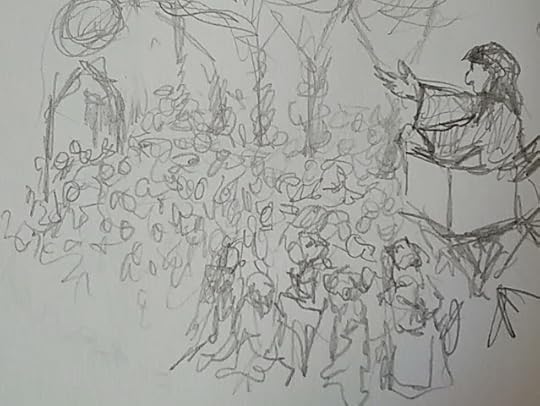
I'm not good at being told what to do. It's not just in writing, but in all walks of life. I don't mind guidelines - in fact, they can be very useful to creativity - but writing to someone else's criteria is another thing. So, back in 2021, when my sister Judith told me about Sapere Book's competition to write a series of books on one of their briefs, I initially ignored it. But then she said she would submit to their Age of Sail brief if I did the Medici/Borgia books. I was still on something of a high after the success of The Year We Lived, but equally stuck in a deadspot in terms of creating a book which could live up to it, so I agreed to have a go at it, the resulting story being Poisoned Pilgrimage.
My research took me far away from anything I had ever written creatively. Instead, I returned to my degree days and wrapped myself in the theology of the day. And it was good to be back! My set of stories was not selected by Sapere, but it didn't matter. It had been enough to take me onto a new journey and it also rekindled my love of church history in all its messy unpleasantness as well as its heavenward study.
 The Savonarola Journals
The Savonarola JournalsWeighing in at approximately 150,000 words
The opening chapter for Poisoned Pilgrimage was accepted into the Embark journal and, during 2022, I kept a journal of research observations and commentaries on the life and works of Savonarola. Ironically, it was this dipping of my toe into the waters of nonfiction which gathered a lot of interest from fellow researchers, but at this point in time I have no plans to take it anywhere. I wrote it for myself about a man who became a fascination to me. One day, I intend to write a complete thesis on Savonarola as a medieval embodiment of Moses, but that is so far back on the boiler it's practically falling off!
The rejection letter I recieved from Sapere was very nice. I'm sure it was generic, but it invited me to submit to them once more and - being a glutton for punishment - I am doing exactly that. This time, I'm tackling the Age of Sail brief. My story is not a great match for the brief, so I'm not holding out much hope, but it will at least be heartfelt and characterful as it takes my own ancestors (anyone else here related to the Richardsons/Woods/Dances/Spurrels/Mariners from Aldeburgh?) on their seabound adventures.
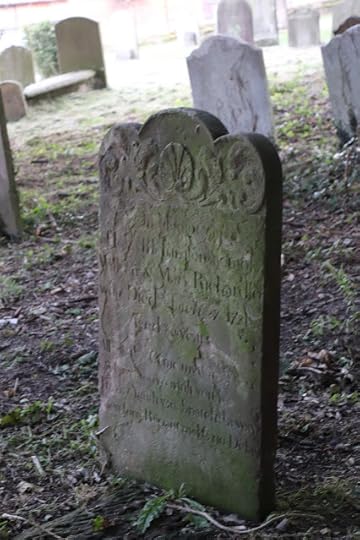
So, Writers of Historical Fiction, it is worth having a crack at one - or more - of these briefs. You might not win, but what you will have is the start of a fabulous new adventure to explore. Don't be afraid to put your own slant upon each brief. Just remember: if you want to write it, someone will want to read it.
You can find the Sapere Books competition briefs here!
Happy writing!
[Incidentally, Judith never submitted her Age of Sail series in 2021, but this time she's already written the Gothic Mysteries - much more her sort of thing!]
Crowvus Book Blog
- Virginia Crow's profile
- 128 followers



